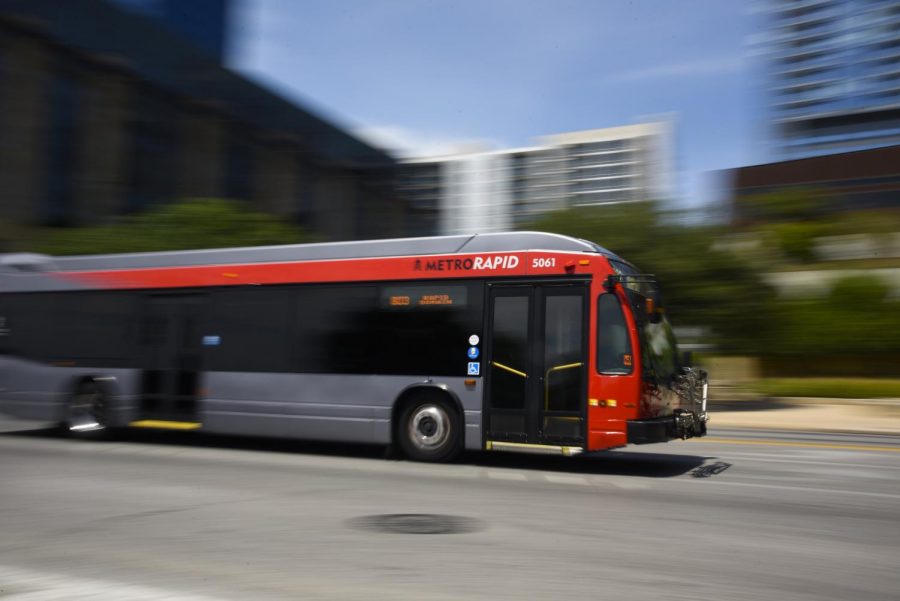CapMetro offers free rides for October, cuts bus frequency due to staffing shortage
September 29, 2021
Capital Metro will offer free bus and train rides for the month of October and has reduced the frequency of some of its bus routes since Sept. 19 due to service interruptions caused by a persistent staff shortage.
CapMetro announced Sept. 3 that it would decrease the frequency of 15 of its bus routes and suspend the Entertainment bus late-night service that runs between student housing neighborhoods and downtown starting Sep. 19. It announced Sept. 24 that all rides in October will be free.
CapMetro’s services previously included a network of 15 high-frequency routes that came every 10 to 12, 15 or 20 minutes, and two MetroRapid routes that ran every 15 minutes. With the new schedule, buses run every 15, 20 and 30 minutes, but some routes only reduce frequency on weekends. In its September service change announcement, CapMetro said it cannot continue to operate those routes effectively without reducing frequencies because of a shortage of new workers and current workers’ COVID-19-related absences.
After adjusting schedules, CapMetro said the goal is to have buses run on a more consistent basis, according to the announcement.
“I’ve noticed delays here and there,” said neuroscience junior Deniz Demircioglu. “It’ll be like a 20 minute delay … I saw one of the routes was canceled today.”
CapMetro is also ending the MetroRapid late-night service at midnight instead of 3 a.m., the announcement said. The late night E-bus will no longer operate in the fall, but the Night Owl bus will still run its downtown routes from midnight to 3 a.m. Monday through Saturday.
“Currently, there is no immediate timeline for services to return to regular frequencies,” CapMetro spokesperson Jenna Maxfield said in an email. “These changes … are temporary and allow us to best meet service demand as we work diligently to hire more staff.”
To attract new bus operators, CapMetro started a recruitment campaign with hiring bonuses or CDL training at no cost, Maxfield said.
Brett Payne, president of Amalgamated Transit Union local unit 1091, said the staffing shortage is partly due to the difficult process of obtaining a commercial driver’s license.
“The CDL market and the requirements that drivers have to go through to require them to have a CDL is pretty extensive physically and mentally and it’s just sometimes not worth the price to have a CDL to start as a bus operator,” Payne said.












